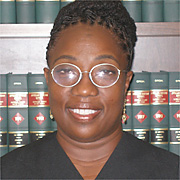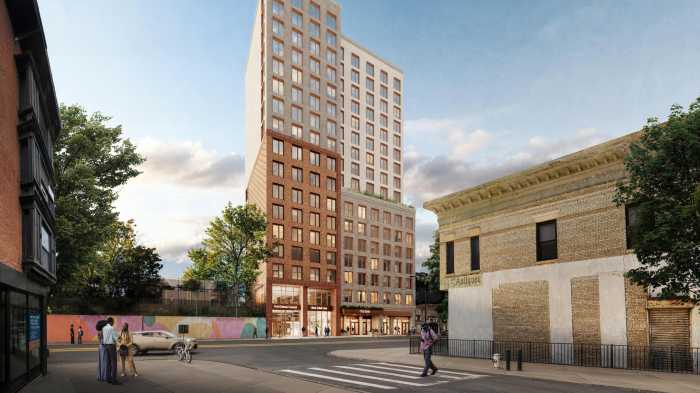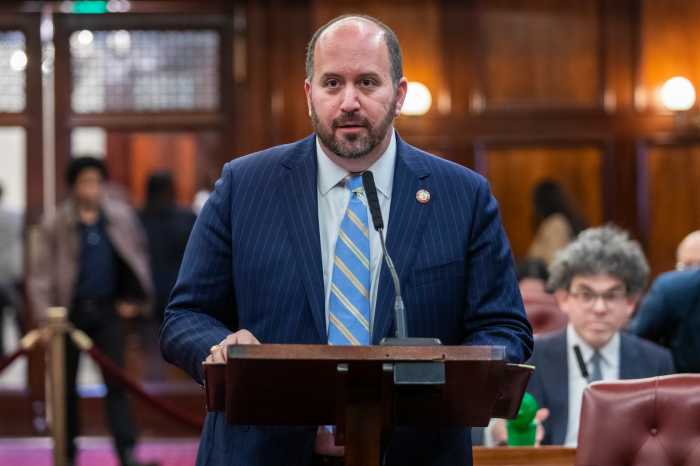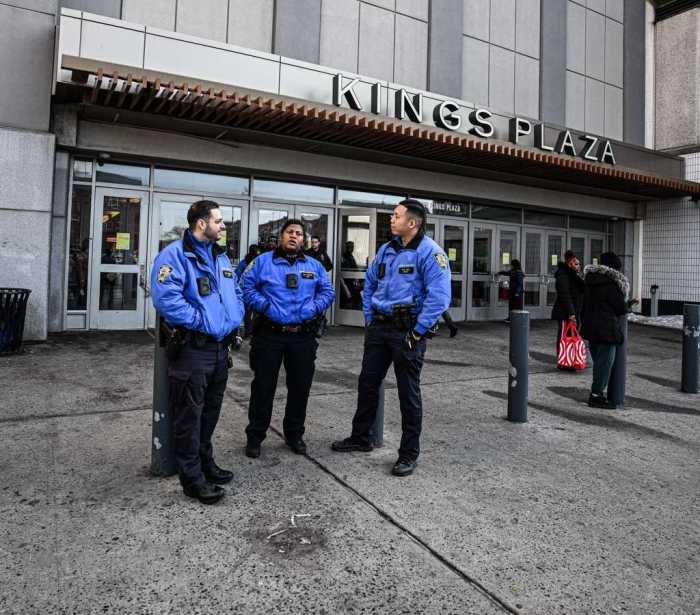A race between two sitting judges for a spot on the Surrogate Court — the powerful office responsible for doling out millions of dollars worth of patronage jobs to legions of Court Street lawyers — has fast become the ugliest Brooklyn battle since the racially divisive election that brought Rep. Yvette Clarke to office last year.
The open-seat fight pits one-time Brooklyn assistant district attorney and Manhattan Civil Court Judge ShawnDya Simpson against State Supreme Court Justice Diana Johnson.
Whoever wins the Sept. 18 Democratic primary — tantamount to election in heavily Democratic Brooklyn — will likely become the borough’s first African-American Surrogate judge.
But, like any good Brooklyn race, this one has been marred by tales of political intrigue.
Critics have charged that Simpson doesn’t actually live in Brooklyn, as required by law, but with her husband and children, who live in New Jersey. A Queens judge recently ruled that Simpson does live in Brooklyn, but the decision hasn’t stopped her opponents from continuing to make the claim.
“We [still] believe that ShawnDya lives in New Jersey,” said Gary Tilzer, Johnson’s campaign manager.
Simpson is not taking these charges lying down.
“Am I wrong because I want a different lifestyle for my kids?” she said. “It’s one thing to go after me, but to go after my family? You know what? The fight’s on.”
Simpson has fired back with allegations that Johnson, who lost the seat last time by just 102 votes, has longstanding ties to disgraced former Democratic boss — and current Big House resident — Clarence Norman.
Johnson’s campaign denies the contention — and then contends that Simpson is the one with those Norman ties.
The race has even divided the Brooklyn political establishment, with Simpson earning the support of the current Kings County Democratic boss, Assemblyman Vito Lopez (D–Bushwick), and Johnson garnering the endorsements of the Independent Neighborhood Democrats, the Central Brooklyn Independent Democrats, and the Lambda Independent Democrats of Brooklyn.
Johnson’s biggest public supporter is Chris Owens, the one-time congressional candidate and future borough president candidate, who has called for Lopez’s resignation, saying his support for Simpson shows that the bad old days of “backroom deals” are still the rule in Brooklyn.
Despite the allegations flying around, both Simpson, who has been a judge for three years, and Johnson, who has been on the bench for 16 years, say they have similar goals for the Surrogate Court, which assigns lucrative guardianships to connected lawyers to handle the estates of orphans, people declared incompetent, and people who die without wills.
And they both promise to clean up the court itself, which is still best remembered for the resignation of Judge Michael Feinberg after he was found in 2005 to have illegally directing $8.5 million worth of business to a buddy of his.
“I expect to do community outreach, to let people know the importance of wills, what the Surrogate Court does and why it’s important to do estate planning,” said Simpson. “In the past, there’s been a lot of corruption that happened in the system. In any position I serve, my reputation is of the utmost importance to me. I will make sure I put people around me that I trust.”
Simpson also vowed to better publicize estate auctions.
Johnson did not return repeated requests for comment. But Tilzer said Johnson would also “change things.”
“She wants to open up the system to let more people practice in that court,” said Tilzer. “Now, it’s a closed system.”
The Democratic Primary for Surrogate Court is on Sept. 18. Go to http://www.vote.nyc.ny.us to find your polling place

























